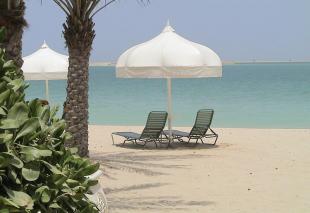

Made in Australia

Opportunistic Australian hospitality suppliers plan to step in where local companies fail to deliver the goods that meet Middle East hotels’ expectations.
A lack of fast, international-standard service from suppliers at a local level has resulted in a tendency for Middle East hoteliers to buy direct from global companies, according to Australia-based chef uniform supplier Global Chef’s CEO and founder Tim Grubi.
This has enabled Global Chef and other Australian companies to enter the regional market. “Hoteliers know that international suppliers doing business in the UAE have systems in place to accommodate export business. This benefits buyers because they are dealing with the world’s best suppliers rather than small, unprofessional operators,” says Grubi.
His comments were echoed by Australia’s Delta Hospitality Supplies managing director Tony McCarthy, who claims that the region can benefit from Australia’s mature tourism market and suppliers’ vast experience in supply chain, service offerings and innovative products and solutions.
Increasing competition
Furthermore, international suppliers can step in with creative solutions as many existing companies in the local market are just “order takers” with “insufficient knowledge to complement the wide product range,” says Australia-based Casualife Furniture International VP international operations Antony Guss.
Experienced procurement managers can go direct to Australian companies to bring projects in the Middle East a service guarantee.
For example, Casualife Furniture can manufacture custom-made designs and still offer a commercial warranty; an area where local suppliers fail according to Guss.
“We recently replaced 250 teak sun loungers for a hotel after they had been in place for just eight months. The property had bought from a local supplier that did not have a lifetime of industry experience to understand the necessary treatment that is required for the hot Middle East climate,” he explained.
Global Chef’s Grubi says being focused on one product, uniforms, gives the company the advantage of being able to tailor pricing and products to meet customers’ needs and the ability to respond quickly and accurately with quotes and samples.
“Delta Hospitality Supplies offers a range of 10,000 products and more than 1500 popular items are kept in stock,” says McCarthy, which means the company can often match the delivery times offered by suppliers based in the region.
Delivering the goods
While products made in China, for example, and branded by Australian companies can be delivered more quickly, if the product is manufactured in Australia, hotels should allow for a 28-day shipping period plus the manufacturing time, says Guss.
Manufacturing times vary. “Stock items are dispatched within 24 hours and non-stock items are generally dispatched within five days, so we expect goods to take five weeks to arrive, says McCarthy.
Similarly, Grubi estimates standard goods can be packed on the same day while, depending on the level of customisation, tailored goods are dispatched within one to six weeks.
Value for money
Guss acknowledges Australian products are “not cheap”, but he says they are excellent value for money when considering life-span and quality.
“Australian-made products offer great value for money and generally the excellent quality of Australian-manufactured goods is world-class,” asserts McCarthy.
Furthermore, over the past 12 months, the Australian dollar has seen a lot of movement in its value, ranging between 60-80 Australian cents to the US dollar. But according to McCarthy, there is more stability in the currency at present and that will bring certainty to the pricing of Australian exports.
F&B Specialists
The suppliers pinpoint an area of growth in the region as the hotel F&B sector; that is where Grubi “sees the action happening”.
“Food, chefs, personalities of staff, F&B equipment and décor are aspects where hotels get noticed as well as the environments in which food is served,” he says.
The company’s most popular product in this region is its modern Global Chef A200 and B200 combo, due to a trend for ‘contemporary’ uniform styles in Middle Eastern properties, according to Grubi.
Similarly, Delta Hospitality Supplies continues to see strong sales growth in commercial cooking equipment, in particular the brand Waldorf, which he says is manufactured in New Zealand.
McCarthy says “Australia is home to world-leading food-service equipment companies, such as Beech Ovens, which design and manufacture bespoke cooking equipment that you would expect to find in many of Dubai’s leading hotels”.
Outside the F&B sector, bed and bathroom supplier Australian Weaving Mills has witnessed a high demand for its products in the region. So much so that the company recently set up a base in Dubai, from which it supplies major brands such as Espirit, driglo, Cottonfield and Tara.
Penetrating the market
So the outlook seems bright for the international suppliers that are not discouraged by cancelled or delayed hotel projects in the Middle East. Some, like Casualife Furniture, may even view market conditions as a positive influence.
“It is frustrating that hotel projects are cancelled, but maybe it is in our favour as other suppliers may not be as keen to enter the Middle East market,” says Guss.
“My only concern is hotels may resort to cost saving; using unproven suppliers or inferior quality products; that would be a very short-sighted approach,” he asserted.